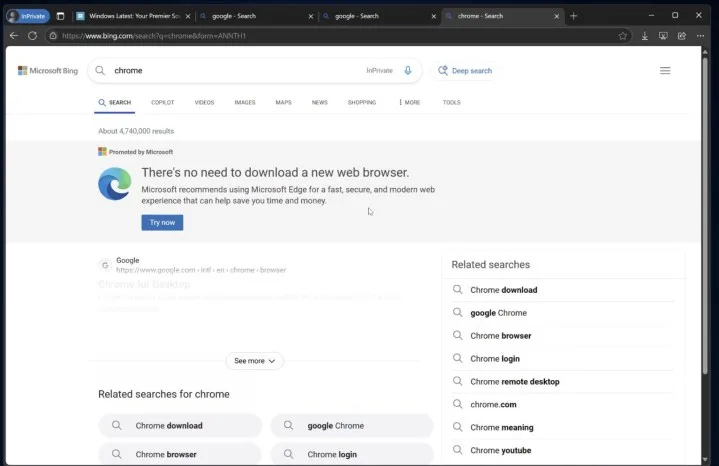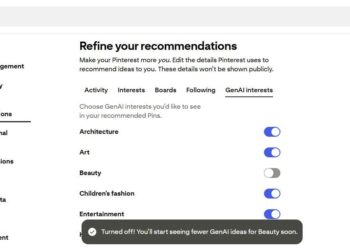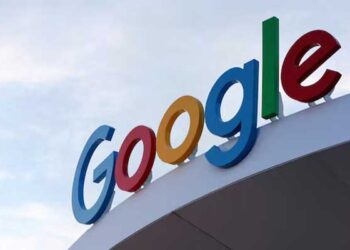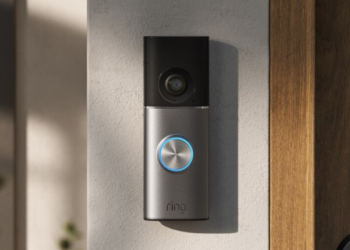Select Language:
At the start of this month, Microsoft sparked controversy when it implemented a deceptive search bar reminiscent of Google’s, which appeared when users searched for its competitor on Bing. Now, it seems the tech giant is setting its sights on the Chrome browser, too. As noted by Windows Latest, some users may encounter a prominent promotional banner for Edge when they search for Chrome while using Microsoft’s browser.
The questionable aspect of this banner is that it obscures part of the Chrome download link behind a “See more” button.
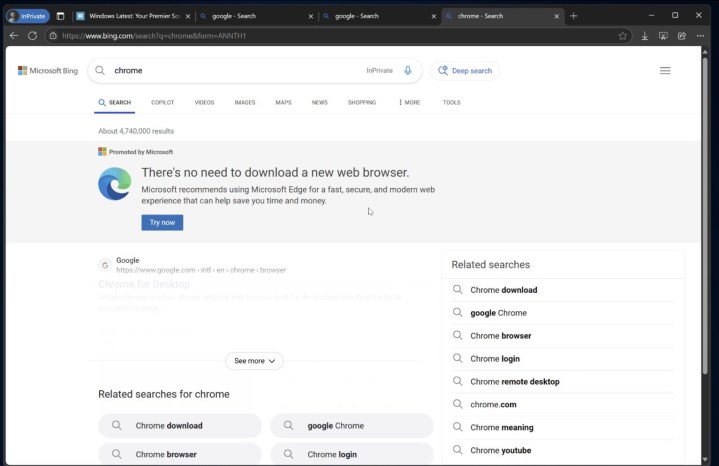
I attempted to replicate this issue myself but couldn’t, so I can’t confirm if it’s still happening. Such experiments are often not rolled out to every user. Nevertheless, as illustrated in the image from Windows Latest, the majority of the Chrome link is dimmed and quite easy to overlook.
The strategy of using a “fake Google” search bar could be argued as a means to steer users toward Bing, as many associate Google with the act of searching itself. However, this argument doesn’t hold up here. If someone searches for Chrome while using Microsoft Edge, it indicates a desire to switch browsers. It’s troubling for a search engine to obscure a link that the user intentionally sought, regardless of its rationale. A search engine should prioritize functionality before promotion.
This banner is particularly unsettling; no user wants their computer to manipulate their internet searches. Microsoft’s focus on self-promotion overshadows the user experience, making it feel akin to searching for “chocolate shop near me” only to get a response, “There’s no need for you to eat chocolate.”
The deceptive search bar strategy has been discontinued, but not before Google seized the opportunity to position itself as the more ethical player with this post on X: “Imitation is the sincerest form of flattery, but Microsoft’s imitation of the Google homepage is merely another tactic in its long-running history of confusing users and restricting options. A new year; a new low for @Microsoft.”
Imitation is the sincerest form of flattery, but Microsoft spoofing the Google homepage is another tactic in its long history of tricks to confuse users & limit choice. New year; new low @Microsoft https://t.co/LKSNNKB7Hy
— Parisa Tabriz (@laparisa) January 6, 2025
I wouldn’t be shocked if this latest tactic vanishes just as quickly. Whether Microsoft has any more “boundary-pushing” advertising methods planned is anyone’s guess. Perhaps its next move will involve redirecting users to Bing when they click on the Google link.

